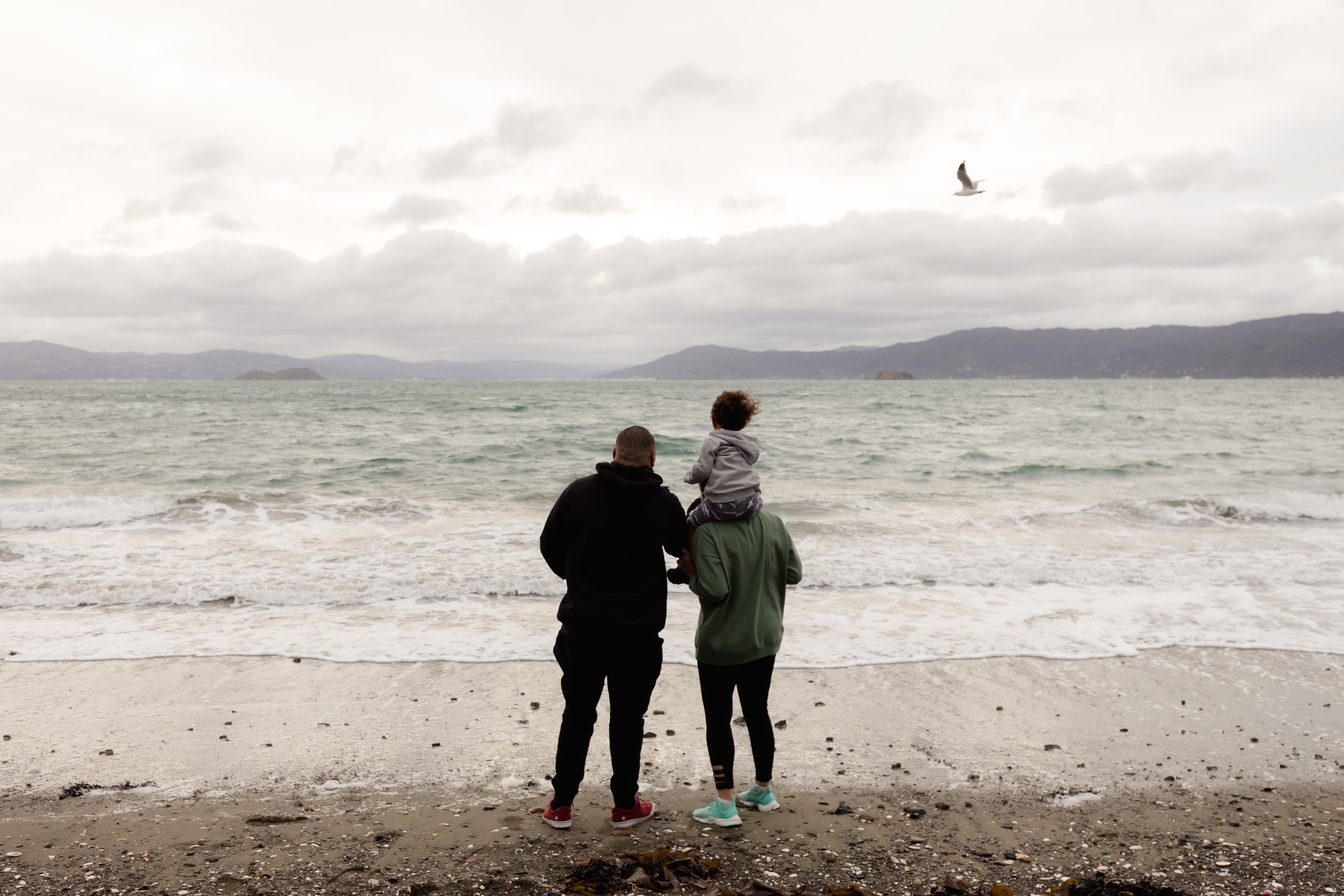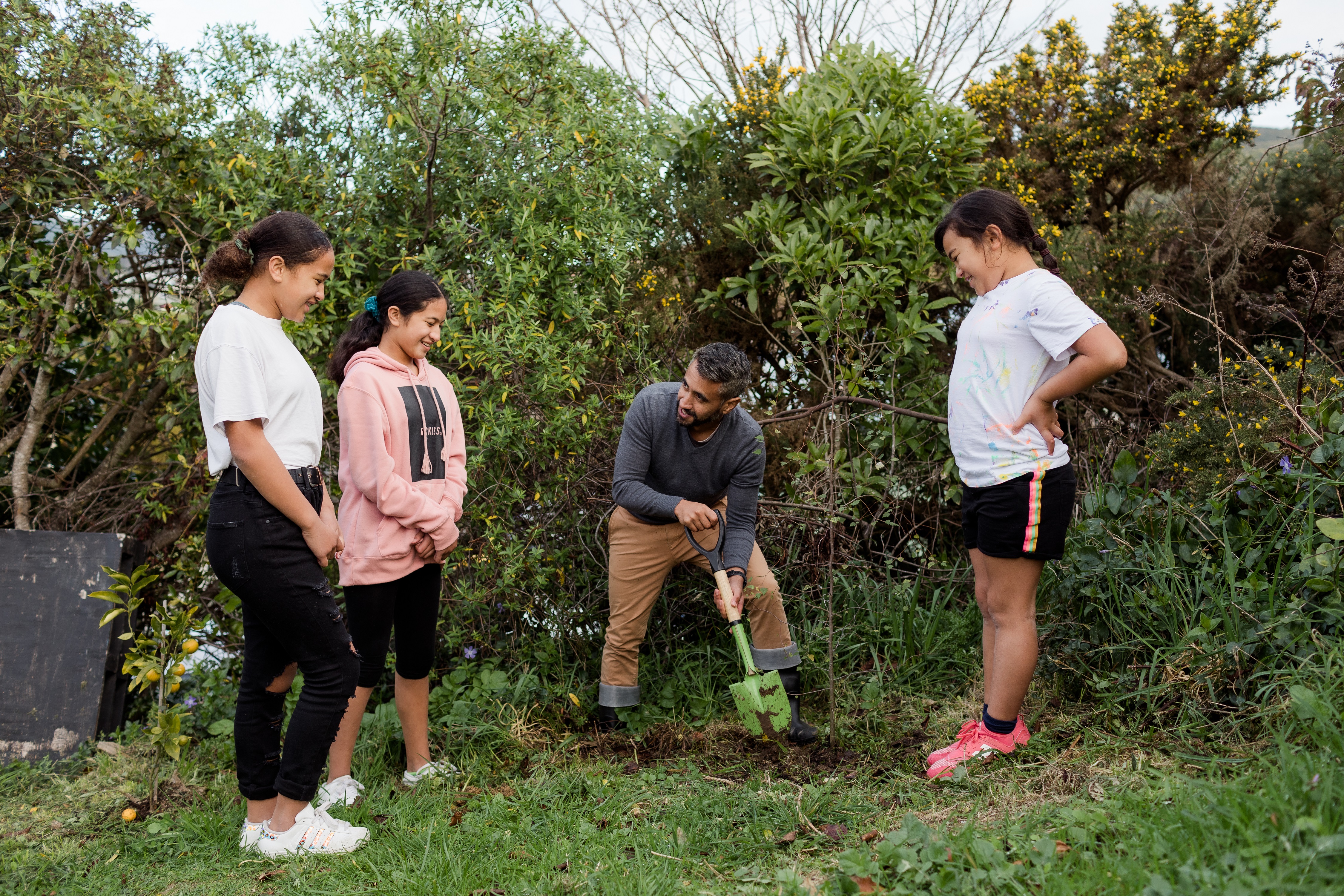Placing your child for adoption
Your pēpi or tamaiti can be adopted by another whānau if you’re not able to look after them. You can discuss your options with us so you can make the decision that’s best for your tamaiti and you.
About adoption
Placing your tamaiti for adoption is a big decision to make. Adoption is a permanent legal arrangement. It involves permanently relinquishing your legal parental relationship so that the adoptive parents of your tamaiti will have full and exclusive parental rights and responsibilities. If you decide to place your tamaiti for adoption, we’ll help and support you through the process.
Most adoptions in Aotearoa New Zealand are ‘open adoptions’ where the birth parents and the adoptive whānau know each other’s details and may keep in touch. Open adoption arrangements are not legally binding.

The adoption process
Talk to a social worker
Your first step should be to contact us and ask to be put in touch with an adoption social worker near you.
The social worker will talk to you about your options and what support is available. They will encourage you to take your time to explore all of the options open to you, your whānau, and your tamaiti. You’ll also discuss the adoption process and what you might expect following the adoption.
Talk to us on 0508 326 459 if you're thinking about placing your tamaiti for adoption.
Choosing adoptive parents
Birth parents choose the whānau who will adopt their tamaiti. You’ll be given information about a variety of whānau who have all been to our adoption education and preparation programme, and who we believe will provide a loving and safe kāinga for your tamaiti.
Approved whānau who wish to adopt provide photos and profiles about themselves and their lifestyles. You’ll be given plenty of time to look carefully for a whānau that feels like the best fit for your tamaiti. You’re both advised to involve your own whānau and friends in this important decision.
You’ll be encouraged to meet with the whānau you select after your pēpi is born. Giving birth can be an overwhelming experience and you’re likely to need time and emotional space to be sure that adoption is still your best decision.
Giving your consent
Both parents who are guardians of the tamaiti must give their consent to adoption. A birthmother is always a guardian. If the child’s birth father has lived with the mother at any time during the pregnancy, or if he has his name on the birth registration, he is also a guardian and needs to give his consent to the adoption.
You can only sign a consent to an adoption once the pēpi is at least 12 days old. Many birth parents take longer than 12 days to come to a decision. Once the consent form has been signed, it's almost impossible to have the decision reversed.
Costs
There are no financial costs for birth parents in the legal process of placing a child for adoption.
After the adoption
However carefully the decision is made, most birth parents who place their tamaiti for adoption have feelings of grief and loss. These feelings may lessen over time, but don't go away completely. Your adoption social worker can give you information and support.
Open adoptions
Most adoptions in Aotearoa New Zealand are 'open adoptions'. This means that both sets of parents get to know each other and have an agreement about what sort of relationship or contact you can have with your birth tamaiti.
An open adoption gives you the opportunity to follow how your tamaiti is progressing. You might do this through photos, phone calls, letters, or visits. It also means the adoptive whānau can ask you any questions they may have about your whānau background or health, and that your tamaiti can know their birth whānau history and whakapapa.
Contact isn't enforced by law, and the arrangement may change over time, especially as the tamaiti gets older and has more to say about it.
Open adoption is usually beneficial for your tamaiti, you, and the adoptive parents. However it can sometimes also create some stresses - kōrero to your adoption social worker if you have any concerns.

Private adoptions
You might know someone personally who you would like to adopt your tamaiti. Contact us as soon as you decide you want to place your pēpi with the new whānau, so we can discuss this with you.
You should be very careful when considering a private adoption as there can be problems. Sometimes birth mothers feel pressured or obliged to continue with adoption even if they have decided they would like to keep their tamaiti. Remember that adoption is final, and you can’t change your mind once you have signed the consent.
Private adoptions are still a legal process and a social worker will need to meet with the whānau to make sure they are suitable. Any arrangements you make with the adoptive parents are not legally binding until consent has been signed.
After the birth, and before you sign the consent, you will still have the right to change your mind and keep your pēpi. The social worker can support you if you decide to do this.
Alternatives to adoption
There are alternatives to placing your child for adoption. You may want to consider a parenting order under the Care of Children Act. This will give the new parents guardianship of your child and they will have the legal right to make day-to-day decisions about them. This is sometimes a good option for step children.
If you think it would be best for your child that they are raised by someone in your extended family, parenting orders can be a good legal option.
We are not involved in parenting orders, as they are arranged through a court. You’ll need to get legal advice about this option from your lawyer or your local Community Law Centre.
Use the 'find a family lawyer' database to help you locate a family lawyer in your area.
Visit the 'Find a family lawyer' page on the New Zealand Law Society website
Published: March 27, 2017 · Updated: October 4, 2023

